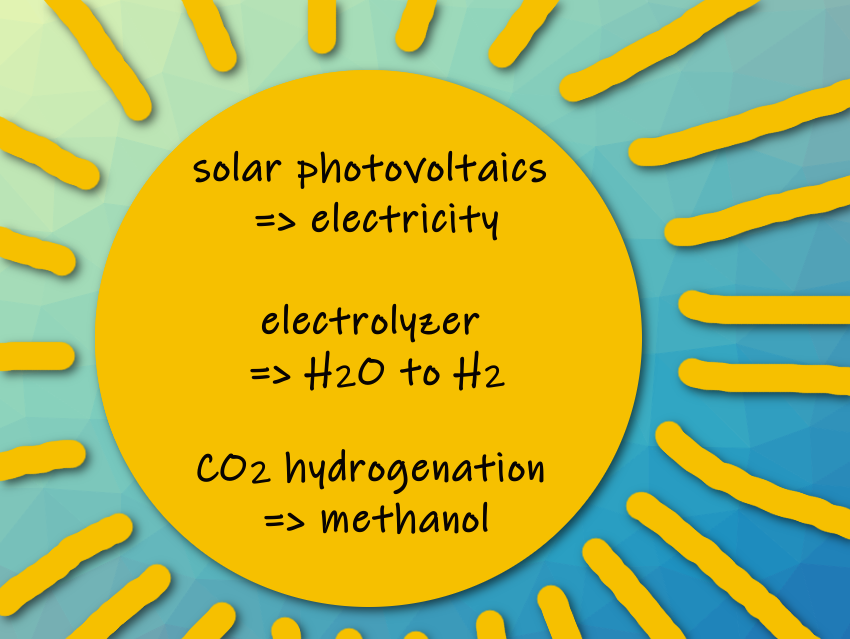A pilot plant for direct solar fuel synthesis started operation in Lanzhou, the capital city of northwest China’s Gansu Province. CO2, H2O, and solar energy are converted into transportable liquid fuels such as methanol. Three technological units are used: solar photovoltaics to generate electricity, an electrolyzer to split H2O to produce H2, and CO2 hydrogenation to produce methanol.
Can Li and colleagues, Dalian Institute of Chemical Physics (DICP) of the Chinese Academy of Science, have developed a new type of electrocatalytic H2O splitting for the process. The technology reduces the energy consumption to 4.0 to 4.2 Kwh/Nm³-H2 for large scale H2 production at a rate of 1,000 Nm³-H2/h. This is the highest energy conversion efficiency reported so far for large-scale alkaline water electrolysis.
The team also developed a ZnO-ZrO2 solid solution bimetallic oxide catalyst for CO2 hydrogenation to methanol. According to the researchers, the methanol selectivity is over 90 % for a single pass in the fixed-bed reaction process. The performance loss was less than 3 % after 3,000 hours of operation under industrial conditions. The methanol produced in this PV-E-C (photovoltaic-electrolyzer-catalyst) process is reported to be more than 10 % solar energy conversion efficiency. This is superior to the ca. 1 % of solar energy conversion efficiency achieved by natural photosynthesis of most plants.
The researchers see their green solar methanol production demonstrated in Lanzhou as a revolutionary step and as a model for energy transition from fossil fuels to renewable energy.
- Thousand-tonne Seale Demonstration of Solar Fuel Synthesis Starts Operation in Lanzhou, China,
Zhang Nannan,
Chinese Academy of Science 2020-01-17




